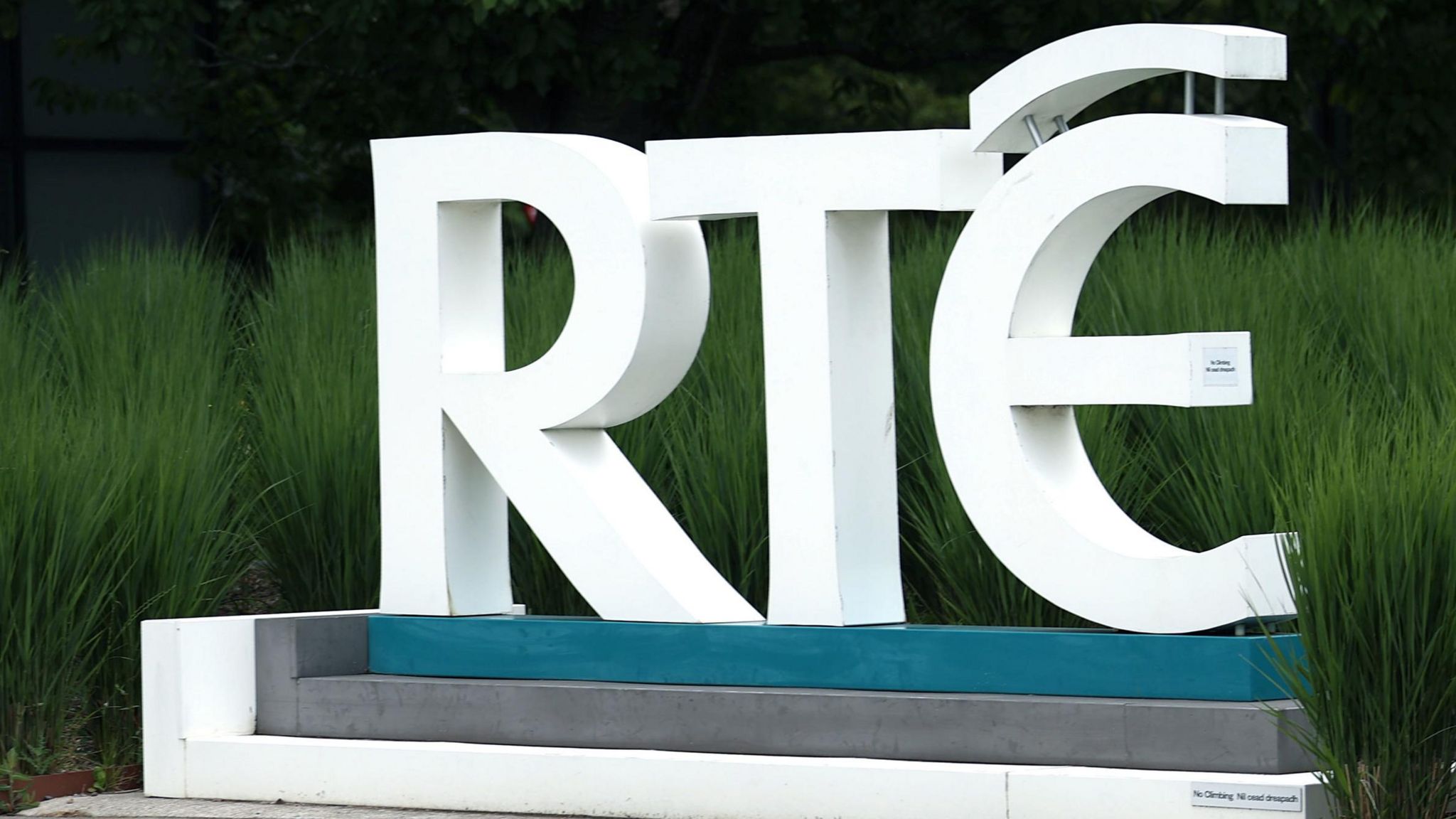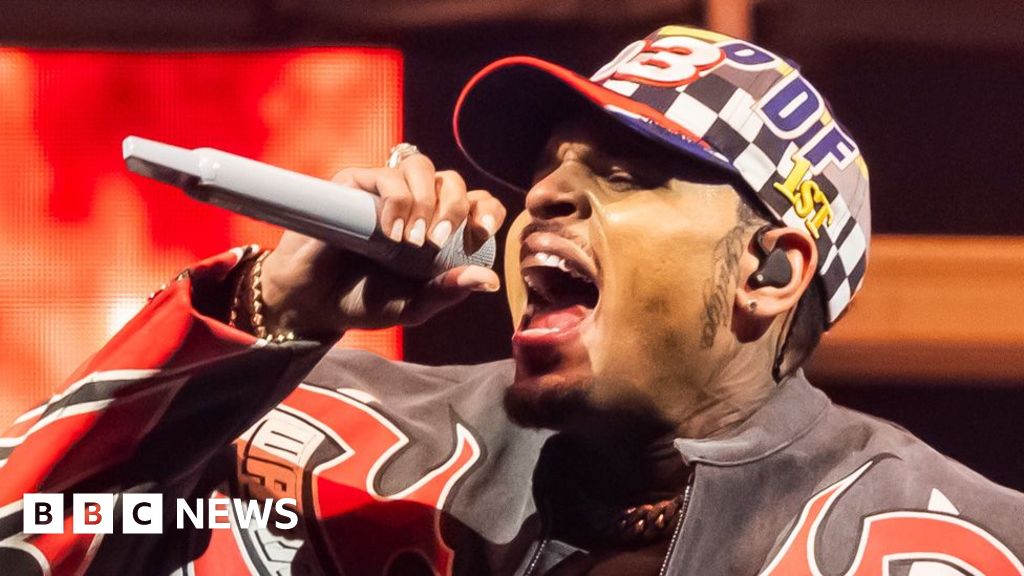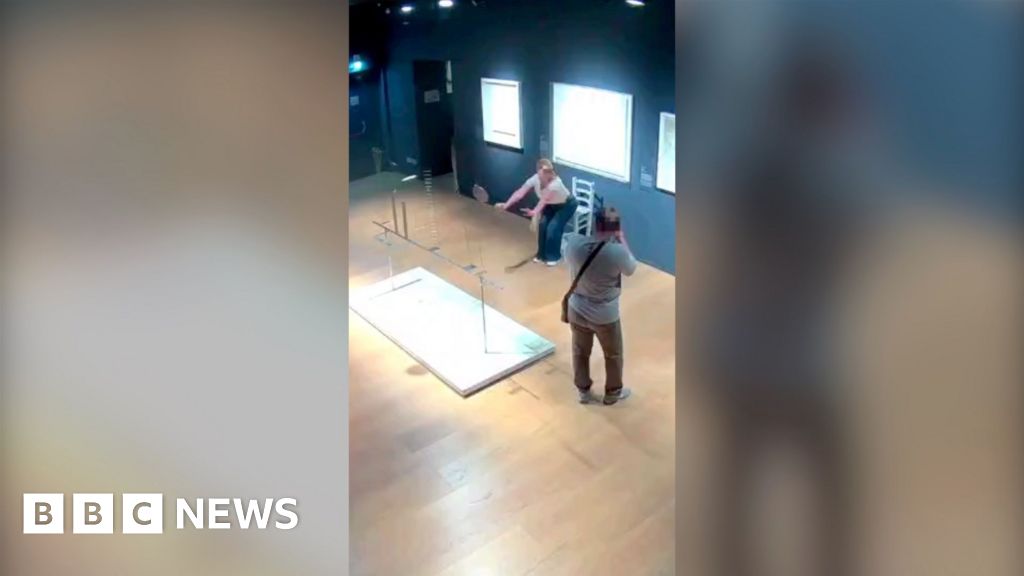ARTICLE AD BOX
 Image source, PA Media
Image source, PA Media
Irish public broadcaster RTÉ has been under fire for undisclosed payments made using public funds
At a glance
RTÉ has been under fire after it emerged controversial payments were made to star presenter Ryan Tubridy
An audit found Mr Tubridy had been paid €345,000 (£296,800) more than what was declared publicly
The Irish government has announced a two-branch independent review of the broadcaster's governance
As the scandal continues, BBC News NI breaks down what has happened so far
Jessica Lawrence
BBC News NI
Irish broadcaster RTÉ has been embroiled in a scandal over controversial payments made to one of its star presenters.
In June, it was revealed Ryan Tubridy was paid €345,000 (£296,800) more than was declared publicly between 2017 and 2022.
The former director general of RTÉ, Dee Forbes, resigned with immediate effect on 26 June over the payments.
The Irish government has also announced an independent "root and branch examination" to review the broadcaster's governance and culture, as well as contractor fees and other matters.
As more details emerge about the broadcaster's finances, BBC News NI takes a look at some of big questions being asked about the controversy.
Who is Ryan Tubridy?
Image source, PA Media
Image caption,Undisclosed payments to Ryan Tubridy was the beginning of the controversy surrounding the broadcaster
Starting his broadcasting career fresh out of university as a runner for The Gerry Ryan Show, Mr Tubridy has become RTÉ's most paid presenter over the years.
In 2009, he took over hosting duties for the broadcaster's flagship talk show The Late Late Show.
The programme - combining entertainment and current affairs - is considered an institution in Ireland.
Its annual highlight comes in the run-up to Christmas with the Late Late Toy Show.
He stepped down from the role in March after 14 years. Northern Ireland-born comedian and presenter Patrick Kielty is due to replace Mr Tubridy as the show's host later this year.
Mr Tubridy also hosts a weekday show on RTÉ Radio One, but has not been on-air since the undeclared payments were revealed.
Mr Tubridy is represented by agent Noel Kelly, both of whom have offered to appear before the Oireachtas (Irish parliament) to help with its investigation into the payments.
What was he being paid?
As a public service broadcaster, RTÉ publishes the earnings of its highest paid presenter's every year.
In 2021, RTÉ said Mr Tubridy earned €440,000 (£376,250), about €26,000 (£22,200) less than what he made the previous year due to a 15% pay cut.
However, it recently said that it had misstated figures for Mr Tubridy's pay, and the presenter had actually earned €515,000 (£440,380) in 2021.
The extra payments were found during an audit of the broadcaster's finances.
It said that between 2017 and 2022 Mr Tubridy received a series of payments totalling €345,000 (£294,300) above what was made public.
A review, the organisation's board said, found that under a separate agreement Mr Tubridy was guaranteed €75,000 (£64,000) of additional annual income by RTÉ which was intended to be paid by a commercial partner.
However, the partner did not renew the contract for a second year, and given it was guaranteed by RTÉ, the payments were made directly by the broadcaster to Mr Tubridy's agent.
As a result, he received two payments totalling €150,000 (£128,000) in 2022, for that year and the previous year.
Image source, PA Media
Image caption,Staff at RTÉ have called for its employer to provide clarity around its finances
How was this being done?
In short, it is complicated.
But what we do know is that some of the undisclosed payments were made using a barter account.
Media companies often use these to trade advertising space in return for goods and services instead of cash.
For example, if there is unsold advertising time, a barter account may be used to exchange that time with a music promotor in return for tickets for an upcoming gig.
It should be a win-win scenario for both parties - the promotor gets cheaper advertising space and the broadcaster gets tickets that can be used for competitions.
These type of accounts are often used in commercial stations, but RTÉ uses a dual-funding model - with part of its money coming from a license fee and the rest from commercial revenue - so transparency over its use of public money has raised questions.
Image source, PA Media
Image caption,RTÉ bosses, such as its board chair Siún Ní Raghallaigh (l), have been giving evidence to government committees
What has the reaction been?
Given that RTÉ gets half of its money from the public, questions over its finances have not been well received.
At a committee hearing, the organisation's board chair Siún Ní Raghallaigh said trust in the station's management has eroded.
Taoiseach (Irish Prime Minister) Leo Varadkar has also been highly critical of the situation, adding there's the possibility some barter account payments may have been on the wrong side of the law.
Image source, PA Media
Image caption,Leo Varadkar has called on the broadcaster to be fully transparent about its finances
Mr Tubridy has been off-air since the payments were uncovered due to editorial reasons.
Staff at the organisation have also protested over the controversial payments.
National Union of Journalist's (NUJ) Irish Secretary Séamus Dooley said barter account spending figures have caused members "deep upset and unprecedented levels of anger" and they have been left "shell-shocked".
What else has RTÉ been spending money on?
At a Dáil (lower house of Irish parliament) committee, RTÉ clarified that it has not one, but three barter accounts.
Fine Gael TD Brendan Griffin accused the broadcaster of running a slush fund.
From these accounts, a UK-based agent was engaged to sell surplus advertising airtime, and was paid a fee of about €345,000 (£256,500) in cash and services, such as hotel accommodation and flights, in return.
Image source, EPA
Image caption,Concert tickets were among purchases made using a barter account
There was €5,000 (£4,275) spent on 200 pairs of flip-flops for a summer party for agencies and clients at €34 (£29) each.
The barter account also spent €12,000 (£10,200) on Bruce Springsteen tickets and €6,358 (£5,400) for 50 tickets for a Phil Collins and Robbie Williams concert.
What's next?
An independent review into the organisation's governance and culture will now take place.
The government said it expects it to take about six months.
Mr Tubridy and his agent Mr Kelly have offered to appear before the Oireachtas media committee to help with its inquiries over the undisclosed payments.
It is unclear whether this will be a public or private session.
As the scandal rumbles on, questions now remains over how RTÉ will win back the public's faith and trust.

 1 year ago
128
1 year ago
128








 English (US) ·
English (US) ·